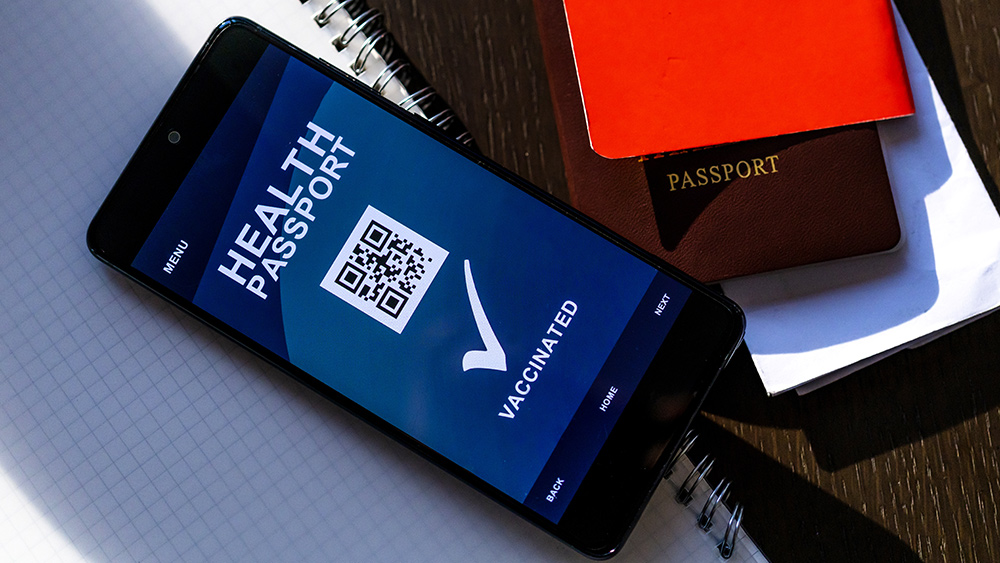World Economic Forum pushing for Great Reset through a “cyber-attack with COVID-like characteristics”
07/11/2021 / By Arsenio Toledo

The World Economic Forum (WEF) is an international non-governmental organization supposedly dedicated to improving the world through business, politics and academia. Recently, it has been delving into the world of cybersecurity. In reality, the WEF is pushing for a Great Reset using a “cyber-attack with COVID-like characteristics.”
The WEF has taken a leading role in the Wuhan coronavirus (COVID-19) pandemic. It has pushed for vaccine passports, digital barcode tracking and, most importantly, the Great Reset. Now, it is warning the world about a possible globe-spanning cyberattack that could cripple the global financial system. (Related: World Economic Forum seeks to enslave Americans by replacing free-market capitalism with “Great Reset” to roll out global socialism.)
WEF priming people to expect globe-spanning cyber attack
In early 2021, the WEF Center for Cybersecurity announced Cyber Polygon 2021. This is an online cybersecurity conference. This year’s Cyber Polygon has one agenda: figuring out what a “cyberattack with COVID-like characteristics” looks like.
In earlier releases, the WEF said Cyber Polygon 2021 would focus on ransomware, the vulnerability of the global supply chain to cyberattacks and digital currencies. The WEF also promised to hold “live training exercises” that respond to “a targeted supply chain attack on a corporate ecosystem in real life.”
“We all know, but still pay insufficient attention to, the frightening scenario of a comprehensive cyberattack, which would bring a complete halt to the power supply, transportation, hospital services, our society as a whole,” said Klaus Schwab, the founder and executive chairman of the WEF. “The COVID-19 crisis would be seen in this respect as a small disturbance in comparison to a major cyberattack.”
Schwab added that it was important for the WEF to use the ongoing COVID-19 pandemic to “reflect on the lessons of the cybersecurity community to draw and improve our unpreparedness for a potential cyber pandemic.”
Schwab made these comments last year, showing that the WEF has been planning to prime people for a cyberattack-induced Great Reset for some time. On July 9, the day the Cyber Polygon conference began, Schwab reiterated his fearmongering by reminding people about the recent cyberattacks that have occurred.
“We have seen in the past few months, for example, ransomware attacks targeting hospitals, critical infrastructure, school systems, the power grid and many other essential services,” he said.
“Ransomware attacks are complex, and criminal enterprises are increasing their scale and impact. This highlights the need for a structured multi-stakeholder, multi-lateral approach to secure our society against them.”
WEF’s worldwide cyber pandemic drill underway
The Cyber Polygon training exercise is comprised of over 200 teams from 48 countries. Companies like IBM, Santander and Ernst and Young have sent their respective cybersecurity teams to participate in this worldwide exercise.
“It is inevitable that some larger attack is going to occur one day,” said John Sancenito, president of a security consulting firm based in Pennsylvania. “What is being talked about today and over the next couple of days is a potential real-world situation.”
Sancenito is interested in the live drill’s focus this year. If a cyberattack targets the United States’ supply chain, it can impact people’s daily lives by shutting down critical infrastructures like the power grid or water treatment facilities.
“What would you do if you can’t access your bank accounts, the internet, or your cell phone suddenly stopped working? These are the kinds of things people really do need to think through because one day we may be facing a crisis like that,” said Sancenito.
The Cyber Polygon live exercise goes on for several days. As of press time, it is still ongoing.
Learn more about how the WEF is planning to bring about a Great Reset by reading the latest articles at GreatReset.news.
Sources include:
Tagged Under: Collapse, coronavirus, covid-19, Cyber Polygon, cyber war, cyber-pandemic, cyberattack, cybersecurity, Glitch, global cyber pandemic, great reset, hack, pandemic, supply chain, supply-chain cyberattack, world economic forum




















